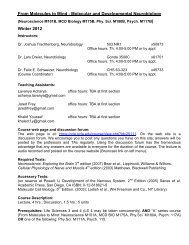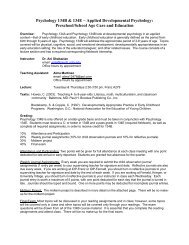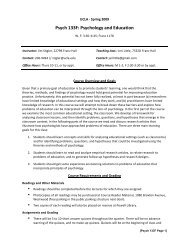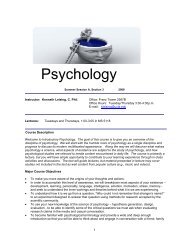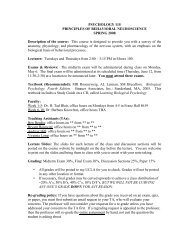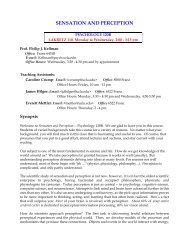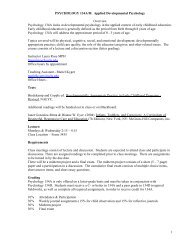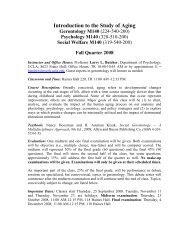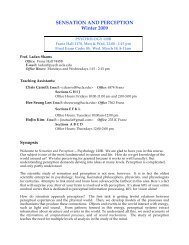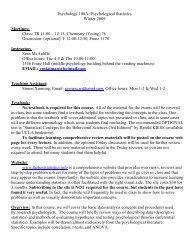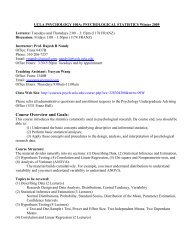Psych 240A Winter 2012 syllabus 5 - Courses in Psychology - UCLA
Psych 240A Winter 2012 syllabus 5 - Courses in Psychology - UCLA
Psych 240A Winter 2012 syllabus 5 - Courses in Psychology - UCLA
Create successful ePaper yourself
Turn your PDF publications into a flip-book with our unique Google optimized e-Paper software.
3/16 Mathematics Teach<strong>in</strong>g and Learn<strong>in</strong>g• Erlwanger, S. H. (1973). Benny's conception of rules and answers <strong>in</strong> IPImathematics. Journal of Children's Mathematical Behavior, Autumn, 7-26.• Kamii, C. & Clark, F.B. (1995). Equivalent fractions: Their difficulty and educationalimplications. Journal of Mathematical Behavior, 14, 365-378.• Hiebert, J. (1984). Children's mathematics learn<strong>in</strong>g: The struggle to l<strong>in</strong>k form andunderstand<strong>in</strong>g. Elementary School Journal, Vol. 84, No. 5, 496-513.• Sophian, C. (2007). Reth<strong>in</strong>k<strong>in</strong>g the start<strong>in</strong>g po<strong>in</strong>t for mathematics learn<strong>in</strong>g. In O. N.Saracho & B. Spodek (Eds.), Contemporary perspectives on mathematics <strong>in</strong> earlychildhood education. Information Age Publish<strong>in</strong>g.• Stigler, J. W., Fernandez, C., and Yoshida, M. (1996). Cultures of mathematics<strong>in</strong>struction <strong>in</strong> Japanese and American elementary classrooms. In T. Rohlen and G.Le Tendre (Eds.), Teach<strong>in</strong>g and learn<strong>in</strong>g <strong>in</strong> Japan. New York: Cambridge UniversityPress. Pp. 213-247.<strong>Psych</strong> <strong>240A</strong> <strong>2012</strong> – Page 4



